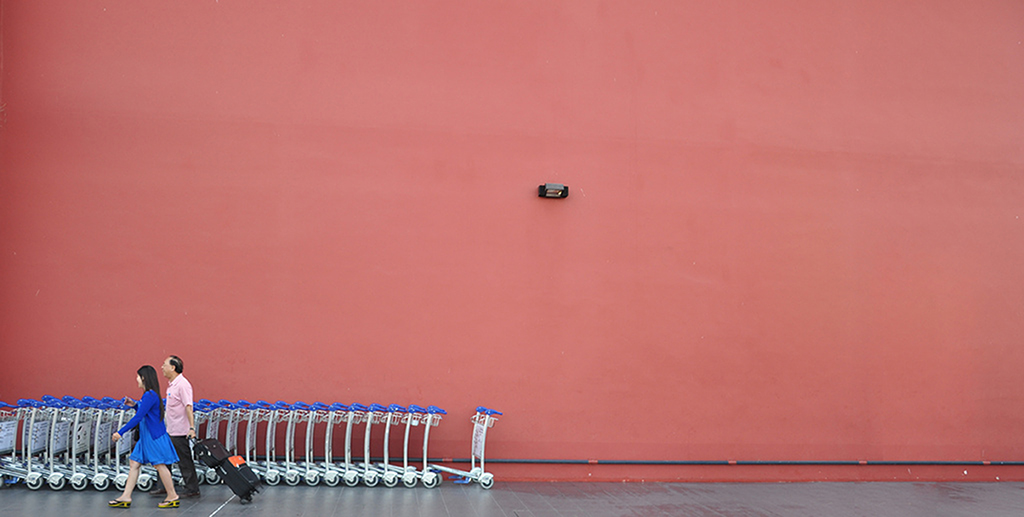Tips for finding even cheaper flights
"The theory that the last-minute purchase is cheaper is not true”, says Neus Soler, professor of Economics and Business at the UOC. Buying at the last minute makes the average price 31.2% more expensive. In fact, according to a study, the best time to book a flight is 7 weeks ahead, when the ticket price is on average 9.7% cheaper. UOC experts in computing, marketing strategies and consumer rights analyse how to fly more for less and without missing the flight.
"Seven weeks before, there are still lots of seats on the flight and it is in the company's interest to fill it, so they are more flexible in offering discounts”, explains Soler. It is important to keep in mind that this market is governed by bigger discounts when there is less activity, so "greater demand leads to higher prices”. Thus, the months of January, November and February are the cheapest months to fly and July and August are the most expensive, as "in general people have more time to travel and the companies exploit this".
Advice for buying cheap flights
"Buying flights during the week is cheaper than doing so at the weekend”, explains Soler, precisely because at the weekend people have more time to search for flights, demand increases and this raises the price. "The companies can use computer systems that detect increased interest in a search or a destination and they raise prices accordingly”, explains Carles Garrigues, UOC professor at the Faculty of Computer Science, Multimedia and Telecommunications.
Therefore, the website Skyscanner suggests buying the outward and return flights separately, as this works out cheaper. Soler contradicts this idea, arguing that "generally it is more economical to buy both together because the airline prefers passengers to buy a round ticket and rewards this". However, sometimes it can be cheaper to buy them separately. For example, if "part of the journey is a flight with low demand (because the flight is at an inconvenient time) or because changes or cancellation of one-way flights are not permitted”, says Soler.
It is important to take into account that phrases such as “only 3 seats left!” or “10 people are currently looking at this flight” are "commercial strategies to create a sense of shortage and low availability and pressure the user into a compulsive purchase”, explains Soler. "It is a marketing strategy to influence the decision to buy by creating urgency". The expert warns buyers that "this information is not necessarily correct". According to Mariló Gramunt, expert in Consumer Law at the UOC, we cannot say that this is "an illegal practice, as the product advertising is not dishonest; it is strategy to pressure potential buyers, but not illicit".
Nevertheless, finding bargains on the Internet is still possible. Those known as “error fares” are computer or human errors in advertising tickets or travel packs that offer fares far below the market price; errors such as not including the fuel surcharge or overlooking a zero in the advertised price, for example. If the user is quick and makes the payment, in principle "the advertised fare is binding”, says Gramunt. But she warns that "if it is clearly an error, the good faith that must prevail in contracts between two parties means that the company has the right of rectification".
Passengers and abuses
Some of the best-known abuses are those of “hyperactive prices”, which rise as you consult them. According to Facua, this is one of the 15 most recurrent abuses in buying flights. After comparing several offers, the buyer returns to the website with the best offer and sees that the price has increased. The explanation lies in computing: "technologically, it is possible to implement systems that make the price vary according to general demand or even the interest shown by an individual user". These systems can be based on "cookies or IPs to follow the activity of a user on a website”, explains Garrigues.
By knowing our Internet behaviour, it is possible to find out "when we have accessed the service or which products we have consulted, without the need for us to register or provide any kind of information". The prices are changed "based on our interest", explains Soler. To try to avoid this kind of "online inflation”, Garrigues suggests that "we can eliminate cookies (or use two different browsers) or two devices with different IPs".
Passengers should keep in mind that being unable to fly because of "overbooking" or "cancellations or delays of more than three hours gives them the right to automatic economic compensation". In both cases, "European regulations (261/2004) regulate these situations" and obliges companies to pay between 250 and 600 euros, depending on distance (half the amount if after the cancellation the company offers the passenger an alternative flight and he/she reaches the destination with a delay of no more than two, three or four hours, also depending on distance). In any of the cases, passengers can submit a claim to "the airline or the Spanish Aviation Safety and Security Agency, as well as to the consumer organizations", concludes Gramunt.
Press contact
-
Editorial department
